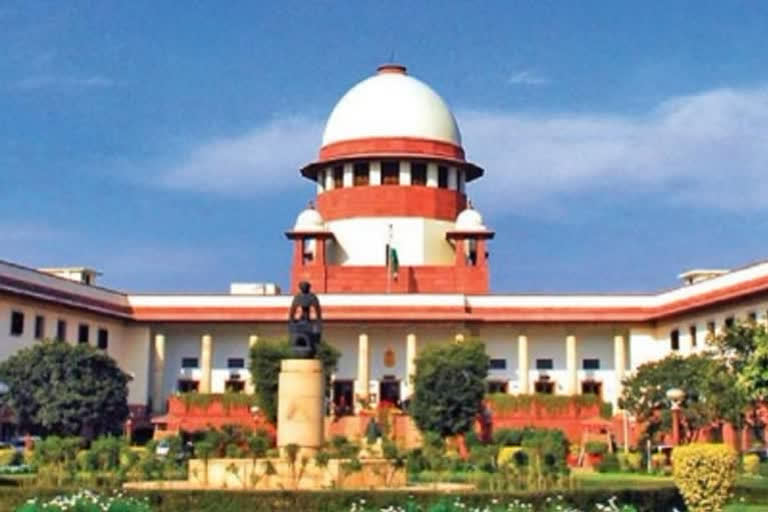New Delhi:Observing that the “menace of dowry death” is increasing day-by-day, the Supreme Court Friday gave a slew of directions on dealing with such cases saying the penal provision on it must be interpreted by keeping in mind the legislative intent to curb the “social evil of bride burning and dowry demand”.
The top court said the penal provision on dowry death does not take a “pigeonhole approach” in categorising death as homicidal or suicidal or accidental and a strict interpretation would defeat the very object for which it was enacted.
Cautioning that the judges, prosecution and defence should be careful while conducting trial in such cases, the apex court said it is a matter of grave concern that, often, trial courts record the statement of an accused in a “very casual and cursory manner, without specifically questioning the accused as to his defense” and sometimes family members of the husband are roped in, even though they have no active role in the commission of the offence. “Section 304-B (Dowry death), Indian Penal Code is one among many legislative initiatives undertaken by Parliament to remedy a long-standing social evil. The pestiferous nature of dowry harassment, wherein married women are being subjected to cruelty because of covetous demands by husband and his relatives has not gone unnoticed,” said a bench of Chief Justice N V Ramana and Justice Aniruddha Bose.
The 28-page judgement penned by the CJI said the provision on dowry death must be interpreted keeping in mind the legislative intent to curb the social evil of bride burning and dowry demand and the section does not take a “pigeonhole approach” in categorising death as homicidal or suicidal or accidental.
Read:Provide immediate aid to children orphaned by Covid: SC
The bench referred to a study titled “Global study on Homicide: Gender-related killing of women and girls”, published by the United Nations Office on Drugs and Crime and said in 2018 female dowry deaths accounted for 40 to 50 percent of all female homicides recorded annually in India.
It said considering the significance of legislation on dowry death and legislation, a strict interpretation would defeat the very object for which it was enacted and the judges, prosecution and defence should be careful while during conducting trial in such cases.
Referring to the definition of the offence dowry death in the IPC, it said, the court should use their discretion to determine if the period between the cruelty or harassment and the death of the victim would come within the term “soon before”.
What is pivotal to the above determination, is the establishment of a “proximate and live link” between the cruelty and the consequential death of the victim, it said.
While expressing concern that trial courts record the statement of an accused in a “very casual and cursory manner, without specifically questioning the accused as to his defense', the bench said “it ought to be noted that the examination of an accused under Section 313, CrPC cannot be treated as a mere procedural formality, as it is based on the fundamental principle of fairness.
“This provision incorporates the valuable principle of natural justice 'audi alteram partem', as it enables the accused to offer an explanation for the incriminatory material appearing against him. Therefore, it imposes an obligation on the part of the Court to question the accused fairly, with care and caution,” it said.
